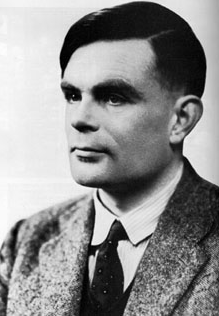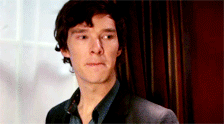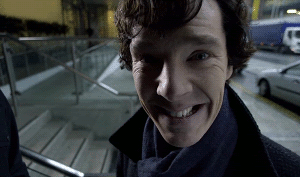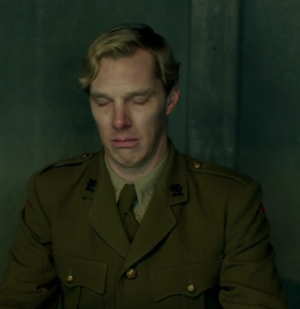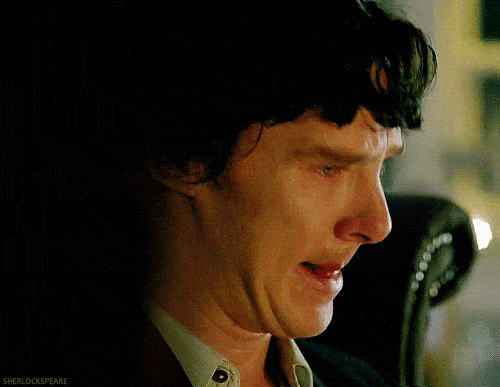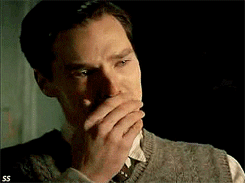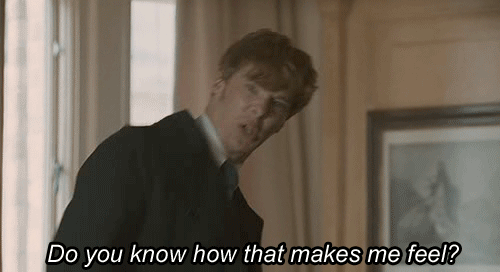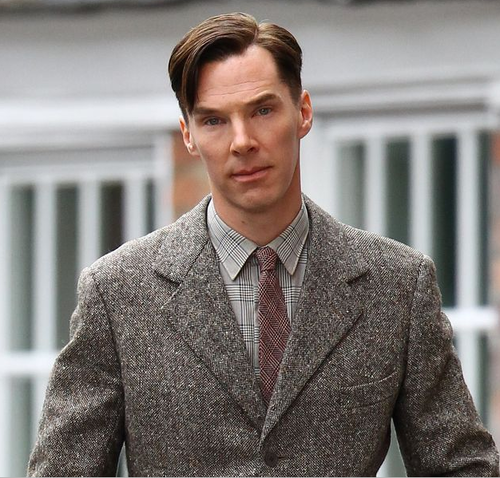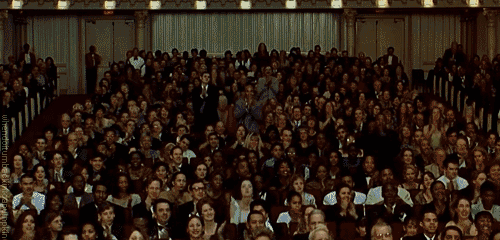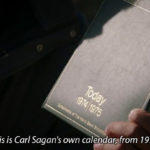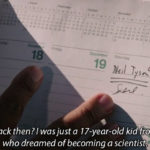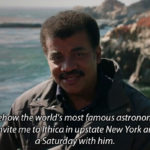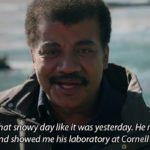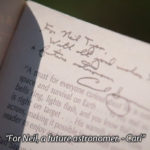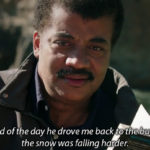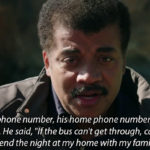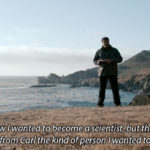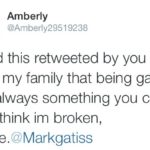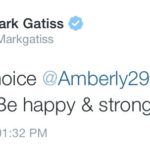I was in charge of the final writing workshop. I marched the poets onto my front lawn in lines of two. Part one of the assignment was this: you had to face your partner, look them directly in the eyes and say, You are an important person. Your writing is necessary. The recipient of this declaration had to wait thirty seconds, absorbing the truth of these words, never breaking eye contact, before replying, I know. Then the first recipient had to repeat this truth back to their partner.
If this sounds easy, I assure you, dear reader, it is not.
Which part do you think was the hardest? Receiving the compliment? Having to make eye contact with someone for thirty seconds? Or saying I know? Would you understand when I tell you that, after I told the poets they had to make direct eye contact with their partner, some of them broke down in tears upon hearing this instruction?
Holding eye contact was brutal, and many of us (or maybe it was just me) took more than thirty seconds to answer, I know. But once everyone got through it, we were changed. And you best believe that the poems written after this exercise were like incantations sprung from the soul. As poets, we often hide behind language, masking ourselves with metaphor. But our poetry cannot exist without us. We have to praise ourselves.
Go ahead. Find a friend or a mirror. Say it:
You are an important person. Your writing is necessary.
Are there poc from history that weren’t slaves or servents? ( I’m sure there were, but were there any well known ones?)
I get why you asked this question, and I get why you framed it the way you have. But I want to take this moment to break down what you’re really asking, here. Let’s take your question on a world tour.
Education in the U.S. (and some other places, too), is incredibly Eurocentric, and most people don’t even know the histories of places other than Europe pre-1500s, and America post-1500s.
This leads to the following assumptions that 1. all history occurred in Europe; 2. Europe was always dominant as a “continent” over all other continents; 3. That people we consider white are a world majority.
Here’s a breakdown of the would population by continent. We know that they are far from racially homogenous, but a re-framing is definitely in order.
Just about 75% of the world’s population lives in Africa and Asia. Notice that’s 60.3% in Asia alone.
As for relative SIZE of continents, a lot of people have really confused ideas about relative sized of continents in relation to each other. A graphic designed by Kai Krause went viral in some parts of the internet a while back, but in case you missed it, here it is:
Here’s the whole thing, which has the original data input the graphic was made from, as well as this image of Europe superimposed on Africa, true to proportion:
and this:
The Peters World Map, introduced in the 70s, generated a lot of controversy because it shows the continents in true area and proportion. It can look oddly “squished” to many people used to a different map:
Okay, we’ve discussed the size and proportion of land masses that humans occupy, and relative populousness of those land masses. But what about race? Well, in a lot of ways, the way we construct race is by skin color; dark or light. Here’s a (admittedly super generalizing) map of the world’s human population by approximate skin color. But it helps some people to see it [via Encyclopedia Brittanica]:
Now, the “lightest skin” areas don’t necessarily reflect “white people” as we would think of it. Many East Asians and Indigenous people in the north (Inuit, Saami), have light skin.
There is no way to make an accurate estimate of what percentage of the world’s population now are what race because many, many nations do not take a census that records race. Trying to determine racial demographics from past eras, especially in Medieval or Ancient times when concepts like “white people” did. not. exist. is basically impossible, for all intents and purposes. Some people say that a third of the entire world’s population lived in Europe during say, the Middle Ages…as we can see that doesn’t necessarily mean “white people”. Moreover, what are we basing that on? Do they take Chinese documents into account? What about the documents from the library of Timbuktu, which as far as I know are still being explored, cataloged, and translated?
Let’s revisit the question. “Are there poc from history that weren’t slaves or serv[a]nts?”
Now, let’s flip the question: For the entirety of human history, was the majority of the world’s population subject to a minority of the world’s population?
The answer is, of course, no. The expectation that there would be a finite list of exceptions to enslavement and servitude on the part of ALL people of color for the ENTIRETY of human history is based on our current views of the world, based on what we have been taught, and HOW we have been taught it.
These expectations are shaped by the media we consume and create.
These expectations are created by an education curricula for history that begins in Europe, a Europe that is supposedly isolated geographically and culturally, despite the fact that it isn’t even separated by water from Asia.
American history begins with “first contact” or “discovery”, with almost no mention of the political or social history of the continent before being “discovered”. The terminology used in most books and documentaries is definitively Eurocentric: “We” discovered “The Other”. We divide time and space into “The Old World” and “The New World.” WHO, exactly, was this “world” NEW to?
What I would *love* to see is an analysis of how many classes that use books that DO cover non-European history, SKIP those histories because “there’s no time”. I am in a rather unique position to witness this, and have come to believe that this is a very common practice in American/U.S. classrooms. Because learning the same five things about the Revolutionary War and World War 2 for six years in a row takes precedence over learning even the most basic facts about anything regarding World History. WHY do we learn the same things over and over? WHY do we know what we know? WHO wrote it down and said this is not just truth, but The Truth?
I’m not asking these questions because I know the answers…I don’t, really. I’m asking them because I want this questioning habit to spread as far as it can. This blog covers only the teeniest, tiniest portion of human history! The focus is incredibly narrow, because I am only one person. But look how much can be amassed in terms of knowledge, in terms of forming new questions, just by ONE person! A whole generation of people are becoming adults right now, and they should be full of questions. Who is going to write the history for the generation after this one? Can you do better?
Can we do better?
I believe with all my heart that we can.
hi sorry can you please explain the basics of what you said about alan turing ‘s story being sad? my phone isnt allowing me to search anything.
Sure i can. Go and make a cuppa and i’ll do my best at a ‘short’ introduction with thanks to the interwebs, BECAUSE YOU ALL NEED TO KNOW ABOUT HIM, BENEDICT SAID SO.
THIS IS ALL REAL LIFE, AND ACTUALLY HAPPENED IN THE UK 60 ODD YEARS AGO. There are some other important bits i have missed out, do read up on him to get the complete story. This a very basic introduction to Mr Turing.
Ok; Alan Turing for people who don’t know the importance of Alan Turing.
Here he is, lovely Alan;
Alan Turing was a British mathematician, cryptographer, and computer scientist. He was an extremely clever (GENIUS) man.
He built lots of computer type things, was the first to help development of the first self-modifying stored program computer and was a pioneer for biology in the area of non-linear dynamics.
During World War II he was principally responsible for cracking the German Enigma cipher. Largely helping us WIN THE WAR (Although don’t forget the others who helped too!)
Turing shares some traits as our beloved Sherlock Holmes. These traits Benedict will find extremely easy to deal with and i’m interested in how he’ll portray Alan. Alan was a quirky and eccentric young man with little interest in conformity. As an adult he was socially clueless. He was opinionated, outspoken, moody, and a homosexual with striking blue eyes, floppy short hair and a habit to keep talking if you tried to interrupt him.
1928 Turing met and became close friends with a classmate called Christopher. The two shared loads of impassioned conversations about science and maths, often passing notes back in forth in class (in code sometimes) to share commentary on various puzzles and postulates in math or physics. A deep attachment bloomed between the boys, and Alan developed a purportedly unspoken crush. But in 1930 Christopher died :(((( unexpectedly of TB. Deeply affected, Alan became obsessed with unraveling the nature of consciousness, its structure and its origins. He longed to understand what had become of Christopher. When Alan thought of something, he was obsessed with it and any aspect of it HAD to he looked at in great detail.
So that was all a bit upsetting in Alan’s life, anyway he went to NYC for a while, went to a few gay bars, lived it up a little bit. Then when he came back to Cambridge the Government Code and Cipher School hired him. Working as a cryptographer at Bletchley Park. He actually proposed to a woman around this time but broke off the engagement because he admitted he was gay and couldn’t lie to her.
He’d lock himself in a room for days at a time but he managed to reverse engineer the Enigma Machine — a stroke of pure genius that allowed the British and their allies to anticipate attacks and other vital information, changing the course of the war. But because of the secrecy of the Bletchley Park, Turing’s work (and others situated at Bletchley) went unpublicised for years.
THEN (I have to copy and paste all this because it’s just too much awfulness to try and say myself),
In 1952 during an investigation of a break-in at his home, Turing had revealed that one of the young men involved in the incident may have been his 19 year-old lover. As homosexual acts were still illegal in England at the time, Turing was arrested and made to stand trial. He pled guilty to 12 counts of ‘indecent acts’, and to escape imprisonment he agreed to undergo one year of estrogen injections (CHEMICAL FUCKING CASTRATION), intended to dampen his sex drive. One side effect of the treatment, complained Turing, was that he began to “grow breasts”. It was said that Turing kept in high spirits during the year of his treatment.
Once he was a convicted criminal :’(, Turing lost his security clearance and was barred from further cryptographic work with the British government. But because he was a homosexual Turing was doubly stigmatised for it was assumed by security forces that homosexuals were high risk :’(, owing to the threat of blackmail. And although Turing was barred from further government work, he still possessed a great deal of highly classified information. What’s more, as a brilliant cryptologist and computer scientist, Turing might have seemed a tempting asset to foreign governments.
Alan Turing died in 1954 of cyanide poisoning*.
His post-mortem report revealed that he had some amounts of cyanide in him. It was concluded that he doused an apple in cyanide and ate it. Although no-one tested the apple for cyanide…. Alan’s friends and the people working with Alan said that he was enjoying life and planning trips and meetings. Even in the last few days before he died, nothing was unusual. The only unusual thing about the scene where he died was that his shoes were left outside of his bedroom door, something, his housekeeper said, he never did. Truly nobody knows how he died. No-one. A sufficient case to find out how Alan died simply didn’t happen. The people who he was last with were never interviewed. People have accepted that it ‘probably was’ cyanide that killed him (he had a spare room that he had a mini lab in (the little scamp) where he’d get up to all sorts – gold plating spoons for a laugh is just one example. Cyanide was something they found in the lab, also in crystal form, and cyanide was also found in his top drawer – it was all over the bloody place!)
Nobody will ever know exactly HOW the great Alan Turing died. And that is a great shame.Lots of people, including Alan’s Mum never believed it was suicide. So sadly we must shrug our shoulders…. 🙁
In 2009, following a fucking huge internet campaign, our government made an ‘official public apology’ on behalf of the government for the “appalling way he was treated”. The House Of Lords also granted Turing a statutory pardon and that was backed by this government last year. Which was of course, is far too late…
His story is inspiring, heartbreaking and incredible. When i saw this particular photo of Benedict dressed as Alan, that face, those eyes, the fucking acting happening HERE;
I know that with Benedict’s help, i’m going to bloody BREAK in half, probably way more than Third Star, at this story – The Imitation Game. Starring Benedict Cumberbatch & Keira Knightley. A story i can’t wait for the world to see.
And see Alan Turing, finally with a voice (there are no recordings of Alan Turing’s voice) getting the recognition he so deserves.
Mr Alan Mathison Turing, everyone.
*standing and clapping*
Cumberbuddy, that was a fucking AWESOME post.
As for me, I owe my livelihood to Alan Turing. Without him, I wouldn’t have a career.
Actually, everyone who has ever used a computing device owes a debt of gratitude to Alan Turing, full stop.
Great article, Cumberbuddy. I am proud to say I am an Alumni of the university where Mr Turing was reader of Maths and there is now a building named after him. http://www.mims.manchester.ac.uk/info/new-building.htm There is a statue to him in Sackville Park in the city center too, near Canal Street, Manchester’s gay village. Although I live in York, my sons’ school named the ITC wing the Turing Wing in his honour when they had new school buildings built. Mr Turing’s name is not forgotten. Am looking forward to The Imitation Game with Ben in the lead role. I think he’ll do superbly well.
Thing I am trying to make myself learn so I’ll stop stressing out so much:
Just because there are other people out there who could do a better job at any given thing, doesn’t mean you can’t still give it a try. The fact that more talented/skilled people…
Just as you grieve if a friend is killed, you should grieve if a fictional character is killed. You should care. If somebody dies and you just go get more popcorn, it’s a superficial experience isn’t it?
Why I write
I’ve found that lately I lack much motivation to create. It’s hard for me to focus on editing my novel. I don’t draw much anymore. I can’t even write these original stories I think up every night as I lay in bed trying to sleep. And I wondered why. It would be easy to blame it on laziness. But that’s not really all of it.
A friend of mine was asked once why she writes: for herself or for attention. At first, I related with the person asking the question. You should write for yourself.
But then I started thinking. Why does anyone write? I can’t answer that question for anyone but myself. And my answer? I write for other people.
If I say here and said I write for myself, I would be lying. I don’t need to write down a story if it’s only for myself. My imagination is far better and more creative than my brain can put into words. If I were writing for myself, I would never write at all. I would simply sit back in my chair or my bed, close my eyes and let my imagination run wild.
The act of taking those thoughts out of my head and putting a shadow of them onto paper isn’t done for my own sake. I do it because I want to share this crazy wonderful story with others.
I like to think that’s why others create, but I can’t answer for them. And I think that’s why I have trouble forcing myself to create anymore. When I feel like there’s nobody who cares about what I create, it gets harder for me to create anything.
And it’s not that I’m looking for praise even. I just want to create things that make people smile. That make them feel good or laugh or cry.
I guess what this all boils down to is that if you read a fanfic or see a piece of art that you like or anything that someone created, I hope you go tell them that. Because I think that it will make them very happy to know that their work made someone happy.
Don’t forget to feed and nurture your artists and writers and creative types.
So, here’s my little bit of ramlbing to go along with all the fuss today.
Everyone is allowed to have feelings, ideas and opinions. At times they may not express them in ways we would like, but we really need to respect each other.
Anyways. I’m older (43). I have been madly in love with Sherlock…
A Study In Chairs – the symbolism of John and Sherlock
We all know the chairs. The two chairs: one black, other red.
They’re John’s and Sherlock’s chairs, which they sit in when they listen to their clients and talk to each other.
But the chairs are – and have always been – quiet symbols of the progress and state of John’s and Sherlock’s friendship.
Every step of the way.












